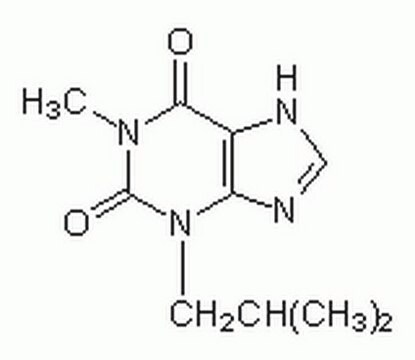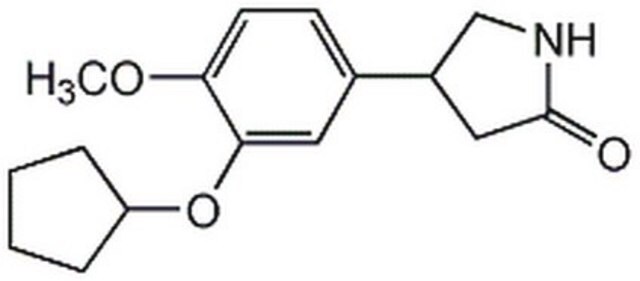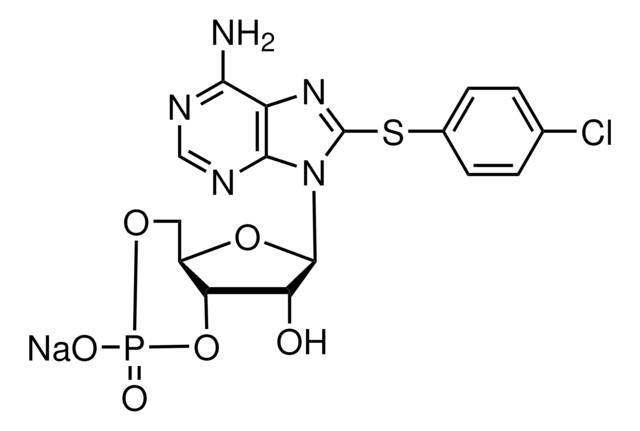557502
Ro-20-1724
≥98% (TLC), solid, cAMP phosphodiesterase inhibitor, Calbiochem
Synonym(s):
Ro-20-1724, 4-(3-Butoxy-4-methoxybenzyl)-2-imidazolidinone
About This Item
Recommended Products
product name
Ro-20-1724, A cell-permeable, selective inhibitor of cAMP-specific phosphodiesterase (PDE IV; IC₅₀ = 2 µM).
Quality Level
Assay
≥98% (TLC)
form
solid
manufacturer/tradename
Calbiochem®
storage condition
OK to freeze
color
white
solubility
DMSO: 20%
ethanol: 4%
shipped in
ambient
storage temp.
10-30°C
InChI
1S/C15H22N2O3/c1-3-4-7-20-14-9-11(5-6-13(14)19-2)8-12-10-16-15(18)17-12/h5-6,9,12H,3-4,7-8,10H2,1-2H3,(H2,16,17,18)
InChI key
PDMUULPVBYQBBK-UHFFFAOYSA-N
General description
Biochem/physiol Actions
PDE IV
Warning
Other Notes
Rubin, L.L., et al. 1991. J. Cell Biol.115, 1725.
Lad, P.M., et al. 1985. Biochim. Biophys. Acta 846, 286.
Bergstrand, H., et al. 1977. Mol. Pharmacol.13, 38.
Legal Information
Storage Class Code
11 - Combustible Solids
WGK
WGK 3
Flash Point(F)
Not applicable
Flash Point(C)
Not applicable
Regulatory Listings
Regulatory Listings are mainly provided for chemical products. Only limited information can be provided here for non-chemical products. No entry means none of the components are listed. It is the user’s obligation to ensure the safe and legal use of the product.
JAN Code
557502-MG:
557502-100MG:
Certificates of Analysis (COA)
Search for Certificates of Analysis (COA) by entering the products Lot/Batch Number. Lot and Batch Numbers can be found on a product’s label following the words ‘Lot’ or ‘Batch’.
Already Own This Product?
Find documentation for the products that you have recently purchased in the Document Library.
Our team of scientists has experience in all areas of research including Life Science, Material Science, Chemical Synthesis, Chromatography, Analytical and many others.
Contact Technical Service






